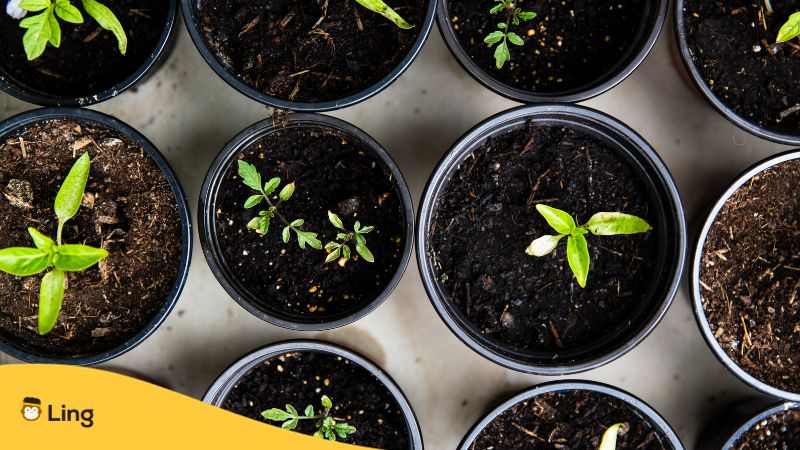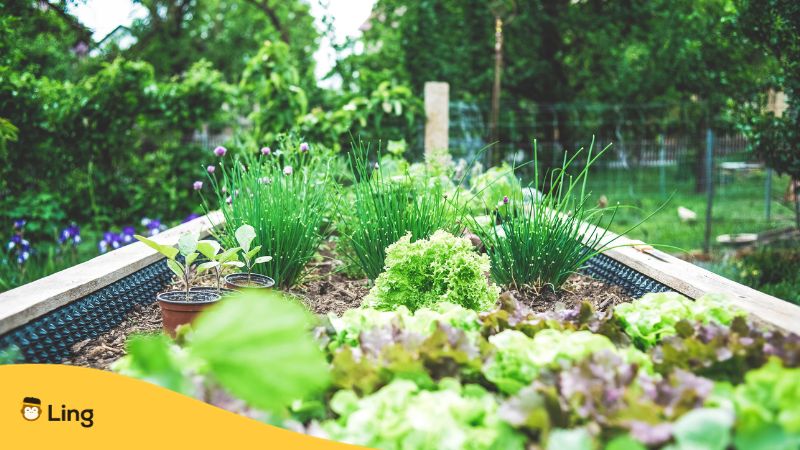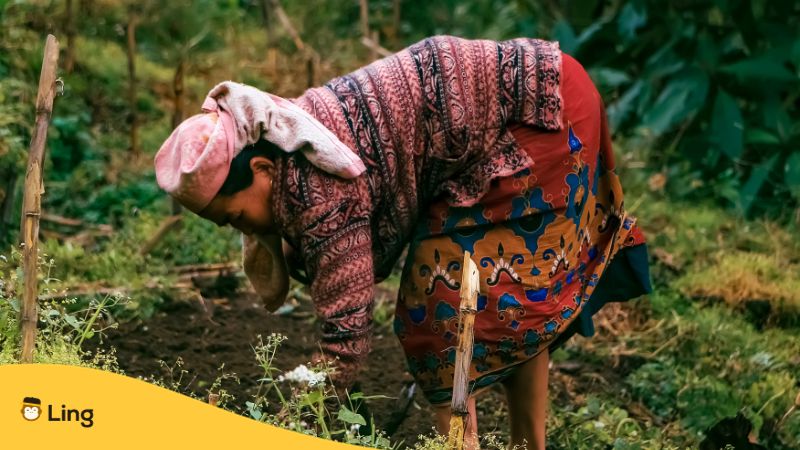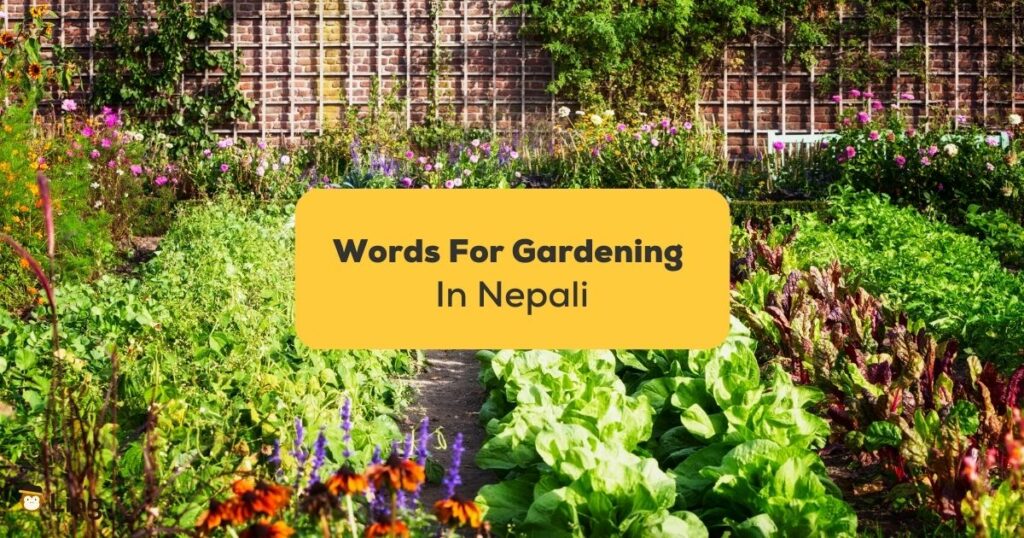Gardening is a cherished tradition in Nepal, deeply intertwined with the cultural history of this beautiful Himalayan nation. From the lush valleys of Kathmandu to the terraced fields in the remote villages, Nepali gardens flourish with a variety of fruits, vegetables, and flowers.
In this blog post, let’s go in depth into the Nepali words for gardening and explore the significance of gardening in Nepali culture.
The Importance Of Gardening In Nepali Culture
Gardening holds a special place in Nepali culture, where many households have their own gardens, ranging from a small flower garden to huge expansive rural plots. These gardens are not just a source of sustenance but also a reflection of the Nepali people’s deep connection with nature.
The act of nurturing and tending to the land, known as “Bagicha Sajilo” (बगिचा सजिलो), is deeply ingrained in the Nepali psyche, fostering a profound connection between people and the earth. It’s a practice that transcends generations, as grandparents pass down their gardening wisdom to grandchildren, ensuring that the traditions of self-sufficiency and sustainability remain alive and thriving. In a world where modernity often challenges these age-old practices, gardening in Nepal stands as a resilient testament to the enduring importance of nurturing the land and preserving cultural heritage.

Nepali Words For Gardening
Here’s a useful table for important gardening meaning. Let’s look at the English words and Nepali words too. Grab your shovel and dig in!
| English | Nepali | Transliteration |
|---|---|---|
| Garden | बगिचा | Bagicha |
| Gardener | माली | Maali |
| Fertilizer | खाद | Khad |
| Farming | खेती | Kheti |
| Flowering plant | फलफूल | Phalful |
| Root vegetable | तरुल | Tarul |
| Plant | पोदो | Podo |
| Green (color) | हरियो | Hariyo |
| Chicken | कुखुरा | Kukhura |
| Agriculture | कृषि | Krishi |
| Field | खेत | Khet |
| Plow | बाल | Baala |
| Seed | बिज | Bij |
| Flower | पुष्प | Pushpa |
| Garland | माला | Mala |
| Rain | बर्षा | Barsa |
Common Fruits & Vegetables In Nepali Gardens
Nepali gardens grow fruit by the bountiful, contributing to the country’s diverse and delicious cuisine. Let’s explore some common produce you might find in a Nepali garden:
- Banana: Bananas or “Kera” (केरा) are a staple in Nepali gardens and a favorite snack for most Nepali people.
- Mango: Aam (आम), the sweet, juicy mango is celebrated in Nepal, both for its taste and cultural significance!
- Pumpkin: Pumpkins or “Pharsi” (फर्सी) are used in a variety of Nepali dishes, from curries to pickles.
- Potato: Potatoes or “Aalu” (आलु) are a versatile staple in Nepali cuisine, used in curries, momo fillings, and more.
- Tomato: Tomatoes or “Golebheda” (गोलभेडा) are essential for making flavorful Nepali chutneys and sauces.
- Onion: Onions or “Pyaaj” (प्याज) add a depth of flavor to many Nepali dishes, from daal to fried snacks.
- Chili: Nepali food is known for its spicy kick, and chilies or “Khursani” (खुर्सानी ) are the secret behind it.
- Spinach: Spinach or “Simbhar” (सिम्भर) is a common leafy green used in Nepali saag dishes.

Learn 3 Fun Facts About Gardening In Nepali Culture
Let us look at some facts about the Nepali Garden culture.
1. The “Ghar Ko Aagan” Tradition
In Nepal, many homes have a dedicated garden space called “Ghar Ko Aagan” (घरको आगन), which translates to “Home Courtyard.” This traditional garden isn’t just for growing vegetables; it’s a place where families cultivate flowers, herbs, and even small fruit trees. It’s not uncommon for households to compete for the title of having the most beautiful “Aagan” in the neighborhood, showcasing their “Phalful” (flowering plants) and “Hariyo” (green) gardens.
2. Community “Dhara” For Irrigation
In some rural areas of Nepal, communities use a traditional irrigation system known as “Dhara” (धारा). This system channels water from natural sources like rivers and streams to nourish the “Kheti” (farming) plots in the valley. Villagers work together to maintain these intricate waterways, ensuring that “Aduwa” (ginger), “Aloo” (potato), and other crops thrive. This communal effort exemplifies the strong sense of community in Nepali gardening.
3. Festive Dashain Flower Displays
The Dashain festival is one of the most significant Nepali holiday celebrations. During this time, Nepali homes are adorned with colorful “Phulpati” (flowers and leaves) arrangements. Families gather “Kera” (bananas), “Timur” (Sichuan pepper), and other offerings from their gardens to create these elaborate displays. The fragrant “Phulpati” symbolizes the victory of good over evil and is an integral part of the festive spirit in Nepal.

Wrapping Things Up
Exploring Nepali words for gardening offers a unique glimpse into the heart of Nepali culture. It reveals a deep-rooted connection between the people and the land they cultivate, reflecting values of self-sufficiency and sustainability. As you navigate through the lush vocabulary of Nepali gardening, you embark on a journey that not only enriches your language skills but also broadens your understanding of a culture deeply intertwined with the earth.
So, whether you’re nurturing your own garden or simply eager to cultivate your language skills, remember that the language of gardening in Nepal is a testament to the enduring bond between nature and Nepali communities. Dive in, and let the seeds of knowledge blossom!
Learn Nepali With Ling
Want to learn more cultural and language-driven information on Nepali but don’t know where to find resources on this niche language? Download the free Ling app today from the App Store and Play Store.
It is a highly researched language-learning app for a fun and personalized experience. Interactive games, authentic speech lessons, and extra levels of fun will keep you hooked on learning the Nepali language. With Ling, you’ll smash your language goals with a little hard work and practice. Aside from Nepali, there are over 60+ foreign languages to learn on Ling. Ditch your Nepali dictionary and download the app today!
































































